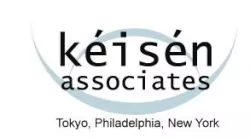Recently Keisen Associates ran a popular article on how the Japan Patent Office (JPO) is concerned over complicated arbitration concerning the Standard Essential Patents (SEPs) that are so widespread in today's "connected" products through artificial intelligence (AI) and the Internet of Things (IoT). Is it giving up? No, it is striving to make the situation of the Japanese manufacturers–and international patent owners–less of a headache.
When adding "smart" features that use image resizing, data signaling, and other technologies so common today, manufacturers are often using technology that is patented by major IT corporations, such as Qualcomm or Ericsson. The manufacturers might not know they need a license for the necessary patents (standard essential patents/ SEPs). The JPO is concerned that litigation or confusion over possible litigation could hinder product development and scare Japanese manufacturers. It is therefore developing guidelines to help alleviate stress and problems for all parties involved.
The JPO's proposed guidelines would
- Give manufacturers a better idea of the going price of the technology protected by the SEPs, what they should expect to pay
- Require that SEP owners who seek a license and payment from such manufacturers be specific in what way their patents are being used
- Require SEP owners to be clear about the standard or reason for their license fee expectations
The JPO hopes that as a result, Japanese manufacturers will be able to develop products and negotiate concerning them with SEP owners more knowledgeably and confidently. With clear and shared information, they can develop products with better good faith and less fear of heavy reprisals. The JPO is seeking public comments on the proposed guidelines and aims to complete them by the spring of 2018.
The content of this article is intended to provide a general guide to the subject matter. Specialist advice should be sought about your specific circumstances.

